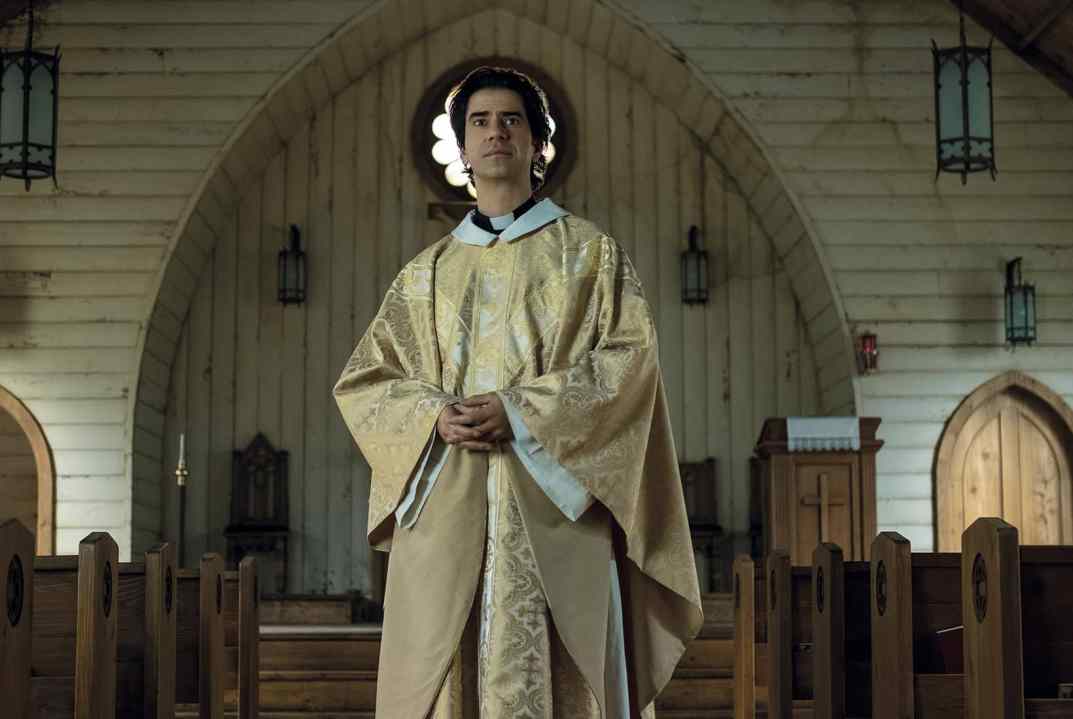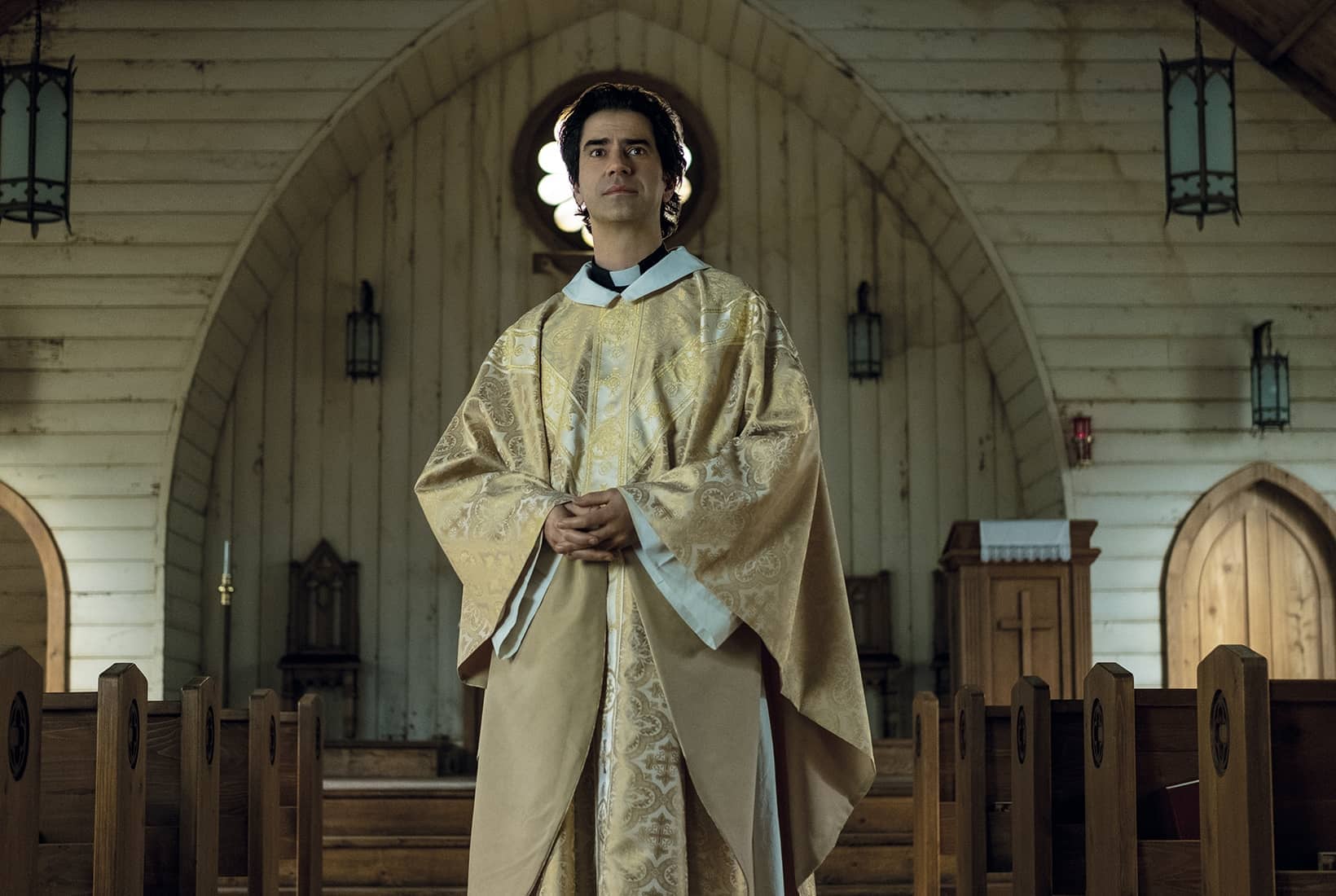I was turned on to Midnight Mass by Ricky Gervais who raved about it in one of his social media chats: ‘I absolutely loved it, and it got better and better. It’s like all the themes like love and death, regret, second chances, but it’s about good and evil in a biblical sense.’
Yes. Midnight Mass is very unusual in that (so far, at least; I’m only two and a bit episodes in) it seems to take Christianity at its own estimation. God is real, miracles do happen, even (or especially) the most miserable sinners can find redemption through repentance. Watching it is quite unsettling because you keep expecting the rug to be pulled from under your feet and, say, the hero priest Father Paul Hill (Hamish Linklater) suddenly to be revealed as a secret agent of Satan.
You expect this because that, generally, is the job of clergymen on TV and in the movies. They are invariably either tortured by doubt, or ineffectual or hypocritical or compromised in some way. Perhaps, like the priest in Fleabag, they’ve been inserted as an unattainable love interest; perhaps, like the vicar in The Vicar of Dibley (with her inverted cross), they are there to reassure you that Christianity really has very little to do with that ‘believing in God’ nonsense. Possibly not since The Exorcist (1973) has a priest been depicted as an honest-to-God fighter against evil.
The soundtrack comprises hymns and psalms, plus a healthy representation of the mighty Neil Diamond
Midnight Mass is set on a small island off the US coast (though it was filmed in Vancouver) with a dwindling population of 127 folk who live in decaying clapboard houses. Their main industry is crab fishing, though that hasn’t been so good since the oil spill. Everyone bears a burden of some kind or another.









Comments
Join the debate for just £1 a month
Be part of the conversation with other Spectator readers by getting your first three months for £3.
UNLOCK ACCESS Just £1 a monthAlready a subscriber? Log in